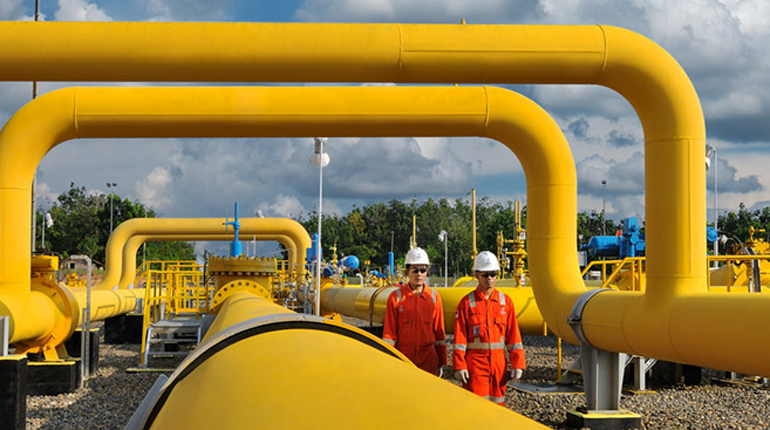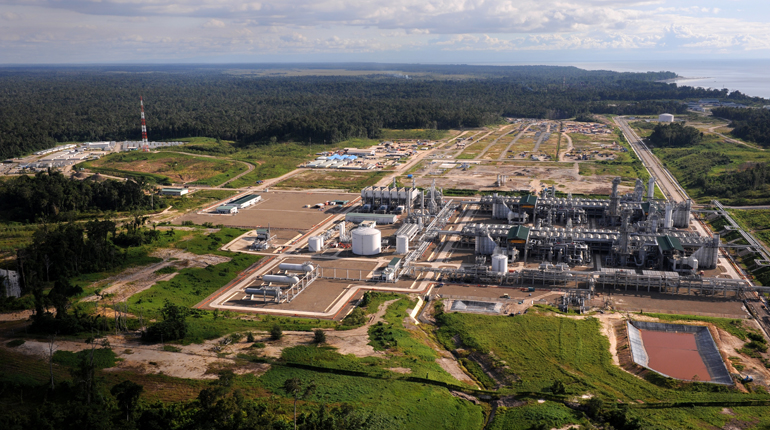 Pipelines in Indonesia. The country’s government is planning to merge its major gas companies. (PGN)
Pipelines in Indonesia. The country’s government is planning to merge its major gas companies. (PGN)
The Indonesian government’s plans to merge state-owned Pertamina and state-backed gas distributor Perusahaan Gas Negara (PGN) to avoid competition in the midstream and downstream sectors is expected to stall.
"It’s not clear that the whole government agrees about combining the pair into one holding company [...] PGN is definitely not aligned because it’s effectively Pertamina taking over PGN," Sammy Hamzah, chief executive of local gas developer Ephindo, told Interfax Natural Gas Daily.
Complicating matters further, Indonesian president Joko Widodo announced a new cabinet lineup on Wednesday, with Archandra Tahar appointed as the country’s new energy and resources minister. He replaces Sudirman Said, who had been involved in a string of public political tussles over the direction of the energy sector.
Although State-owned Enterprises Minister Rini Soemarno, who is driving the proposed Pertamina/PGN merger, has kept her post, the reshuffle could delay or even derail her plans, said Jakarta-based industry sources.
The lack of alignment will also stall the government’s efforts to issue a regulation to establish a state-owned holding company. Jakarta needs to publish the regulation before the merger can go through.
Soemarno expected the regulation to be finalised by the end of August, but this deadline now looks unrealistic following the cabinet reshuffle, which also put in place a new finance minister, Sri Mulyani Indrawati, who will need to sign off on the merger. Additionally, PGN shareholders must give their approval for PGN to become a subsidiary of Pertamina, which they seem reluctant to do at present.
Pertamina is pushing hard to acquire PGN. The NOC claims the merger may save at least $1.6 billion in expenditure over the next five years as it would eliminate duplicate investments, particularly in gas pipelines.
The combination of Pertamina as the biggest upstream player in Indonesia and PGN as the dominant midstream player will create an integrated company across the whole value chain.
But although this could cut down on overlaps between the pair, it might also reduce competition in the sector. This could create problems for third-party pipeline access unless the midstream is further unbundled, Edi Saputra, an Indonesian gas and power specialist at Wood Mackenzie, told Interfax Natural Gas Daily.
"Although the pipelines will be open, if one company operates in an integrated fashion it will be difficult to guarantee [that] they provide fair and objective access to other shippers of gas," said Saputra.
The proposed merger is widely seen as a prelude to the introduction of a national gas aggregator. "If the merger happens it’s certainly an initial step towards a single gas aggregator," Saputra added.
Aggregate proposal
Under the proposal, national or regional aggregators would be responsible for buying gas, calculating the sales price, and managing allocation and transmission. The aggregator would also take over existing domestic gas sales agreements (GSAs), create new GSAs and export any excess gas. However, gas policy remains uncertain, said Saputra.
Regulations were introduced earlier this year regarding the aggregator concept that also fixed prices at around $6/MMBtu for certain sectors, which worries the gas industry, said Hamzah.
The government introduced the new regulations to help commercialise small and stranded gas fields around the Indonesian archipelago, as well as to eliminate gas traders, which take a huge profit but bring no value into the supply chain.
But although the regulations are well intended, overregulating the industry will create even bigger problems, and the gas industry is in talks with the government to reverse the policies, added Hamzah. If the aggregator model goes ahead, upstream companies would effectively be forbidden from freely selling their output – sales would have to go through the aggregator.
It is unclear if established production-sharing contract holders would have to abide by the new rules, but the government is trying to regulate gas exports and even attempting to sign sales agreements with counterparties. This could have huge unintended consequences that would be detrimental to future investment, said Hamzah.
More investment will be crucial for Indonesia as it pursues a huge electricity programme that will remain overly reliant on gas for power, particularly as the country’s renewable energy targets appear too ambitious.
"There seems to be a lot of interest from domestic and overseas investors in new opportunities in gas infrastructure," David Braithwaite, director of Jakarta-based consultancy Q Energy, told Interfax Natural Gas Daily. "But this is likely to be tempered by the current lack of clarity about the role of the new gas aggregators the government intends to establish, and which parties will be selected to take on these new roles."








Talk to us
Natural Gas Daily welcomes your comments. Email us at [email protected].